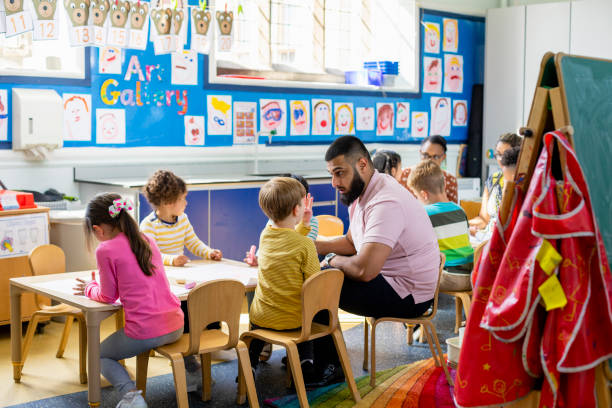
During preschool, your child will develop socially, emotionally, physically,
and intellectually. Read more about the preschool curriculum, with advice for
helping your child achieve learning milestones at home. Your child's preschool
days are filled with social, emotional, physical, and intellectual
development.
The cognitive skills learned at this stage like basic counting and
vocabulary—may seem simple, but they will set your kid up for a lifetime of
knowledge. Preschool also helps with the development of social skills and
positive self-esteem. If kids feel good about themselves and know how to feel
proud even if they make a mistake, everything else will fall into place.
Here are the important learning milestones children will typically achieve in
preschool, with tips for helping your child stay on track with the preschool
curriculum at home.
Letters and Sounds in Preschool
As part of the preschool curriculum, kids will learn to recognize and name
all 26 uppercase letters and some lowercase letters. They can identify their own
first name and write it out, along with other letters and meaningful words like
Mom, Dad, and love. Preschool children will also develop a connection between
letters and sounds, and they'll know some of the sounds that letters
make.
Numbers and Counting in Preschool
A large part of the preschool curriculum is learning what numerals 0 to 9
look like and naming them correctly. Counting is a separate skill that starts
with memorization; kids will memorize the order of numbers and say them proudly
as they "count" objects. As preschoolers advance, they'll realize that numbers
and objects actually correspond.
Cutting and Drawing in Preschool
Before entering kindergarten, children should be able to cut with scissors.
As they develop better hand-eye coordination and fine motor skills, they'll
start drawing and coloring beyond just scribbles. They'll also learn to use
pencils, paintbrushes, and glue.
Socializing and Sharing in Preschool
Developing important social skills is necessary before starting kindergarten;
preschoolers will learn how to share and cooperate, work together, take turns,
participate in group activities, follow simple directions, and communicate wants
and needs. When they start kindergarten, they get dropped off alone, so children
have to be able to speak up for themselves. They need to know how to ask for
help.
Develop your child's social skills by arranging playdates and going to the playground. At home, be consistent about simple rules your child must follow, such as making the bed or putting toys away. Let your child take responsibility for cleaning up, but remember to model appropriate social interaction and politeness.
No hay comentarios:
Publicar un comentario